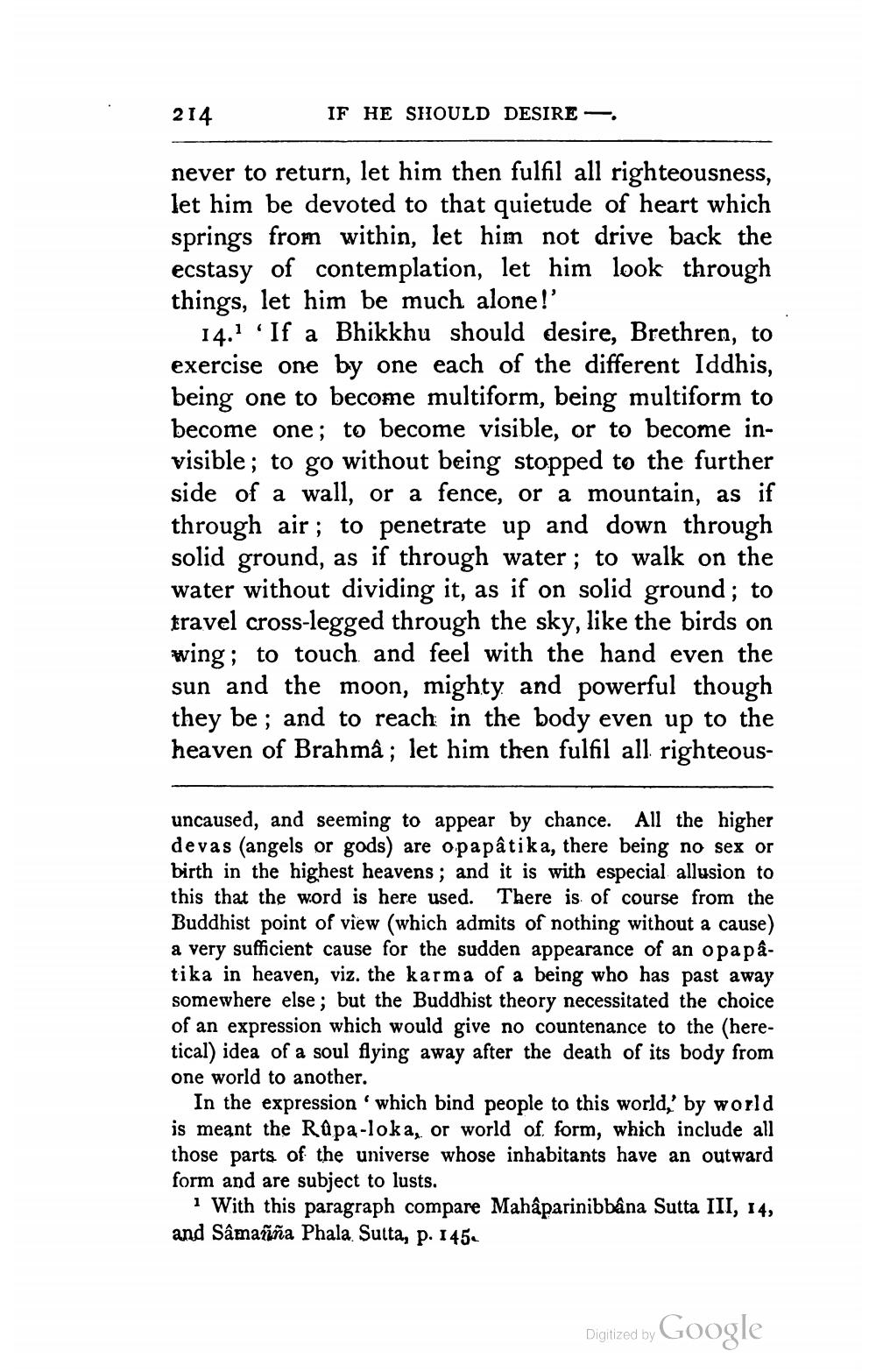________________
214
IF HE SHOULD DESIRE
never to return, let him then fulfil all righteousness, let him be devoted to that quietude of heart which springs from within, let him not drive back the ecstasy of contemplation, let him look through things, let him be much alone!'
14.1 'If a Bhikkhu should desire, Brethren, to exercise one by one each of the different Iddhis, being one to become multiform, being multiform to become one; to become visible, or to become invisible; to go without being stopped to the further side of a wall, or a fence, or a mountain, as if through air ; to penetrate up and down through solid ground, as if through water ; to walk on the water without dividing it, as if on solid ground; to travel cross-legged through the sky, like the birds on wing; to touch and feel with the hand even the sun and the moon, mighty and powerful though they be; and to reach in the body even up to the heaven of Brahmâ; let him then fulfil all righteous
uncaused, and seeming to appear by chance. All the higher devas (angels or gods) are opapâtika, there being no sex or birth in the highest heavens; and it is with especial allusion to this that the word is here used. There is of course from the Buddhist point of view (which admits of nothing without a cause) a very sufficient cause for the sudden appearance of an opapatika in heaven, viz. the karma of a being who has past away somewhere else; but the Buddhist theory necessitated the choice of an expression which would give no countenance to the (heretical) idea of a soul flying away after the death of its body from one world to another.
In the expression 'which bind people to this world,' by world is meant the Rûpa-loka, or world of. form, which include all those parts of the universe whose inhabitants have an outward form and are subject to lusts.
i With this paragraph compare Mahaparinibbana Sutta III, 14, and Samañña Phala Sutta, p. 145
Digitized by Google




